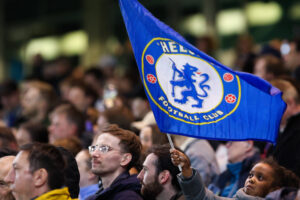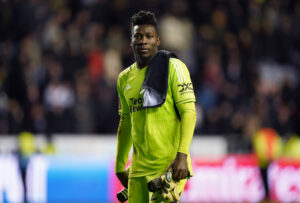The life of a modern-day footballer and sports star has changed massively in the last two decades. The influence of technology and the increase in popularity of football has exploded, making it the most-watched and played sport in the country. But the sport relies on more than just people kicking around a ball, it’s is full to the brim with controversies, talking points and unrivalled atmosphere. All the factors and cogs of the sporting, footballing machine work together to produce 90 minutes of sport that is repeated and watched millions of times every week. This isn’t a normal everyday life, it’s a football life; the life so many of us live in; a life that would be unrecognisable without our beloved game, the beautiful game.
A Football Life
Development
In a world dominated by social media and being massively impacted upon by the rising impact of globalisation, sport is thriving. Viewing figures are constantly rising. TV deals have skyrocketed to unbelievable heights. The latest deal was worth £5.1 billion and covers over five different streaming and TV channels. The media are constantly surrounding the sports stars of today and the so-called private life of an elite athlete is almost non-existent.
In this environment, it is hard to escape the attention of the public. Undoubtedly, this has both positive and negative consequences on the ‘golden triangle’. The sport, sponsors and the media all have a revolving impact upon each other. In this triangle, there is also the individual impact on the athlete. However, this will have a wider reach and stretch out onto the public and people who look up to these sports stars.
Attention
There aren’t many professional journalists that won’t have access in some way to the personal information of top-level athletes in most sports. In a business where football is the most popular, this effect is exaggerated, making players and all involved extremely vulnerable. Writers and reporters are usually snapping at their heels, waiting in the water like piranhas and eager to pick up on any scraps, looking to find the juiciest story, or even to isolate players, fabricating news for their own personal gain, exploiting any political incident they can find.
Footballers are under the pressure of expectation of performance and socially they now have expectations to conform to etiquette and to keep and raise the social standards of sports stars. They are under the microscope in all that they do.
Opinions
It is natural for people to make inferences, snap decisions, to be prejudiced, bias and to judge. They will often form opinions from the most minuscule pieces of information available, creating a mental schema and twisting fact with fiction, altering reality and deciding what is right and what is wrong. It is natural, yes, but it is this false world that people fail to see; a world which, where possible, and with more common sense, it can be avoided; a world where it is believed just because it’s been read or heard. Where is the hard evidence? Where is the perspective? Fans hold grudges but don’t understand the situation in hand. They act like footballers have the lifestyle of normal people.
They don’t. They’re super celebrities. They’re more under pressure than film stars and musicians and performers. These professionals are no less and no more qualified to be doing their jobs. They have no more and no less ability in what they do than footballers. These popular figures don’t receive death threats over their job. They don’t have properties vandalised over their jobs. They are judged on the same basis. Outsiders come into their workspace. They analyse and judge the performance of work. They report it to the world. That is what journalism is. That is the art of the media. But the people that do this are qualified, having spent years of time and effort devoted to being in this position; to becoming a respected member of the media.
This is why ex-professionals are now so commonly used as pundits. Their opinions and views have context. There is no presumption and the knowledge can be brought into the limelight and can be spread amongst followers and people of intrigue that want to know more.
Fans
However, the spectators that make rash and unjustified comments, stepping over and well beyond ‘the line’ of expectation and morals, they don’t have the qualifications. Their actions aren’t warranted.
There are no positive consequences of sending death threats. There are very few positives of receiving them. No, not all cases of an extreme opinion, or of an interpretation of events will lead to this behaviour. But it does happen. When in the spotlight 24/7, it should be remembered, footballers are human. Footballers provide entertainment and under no circumstance should an entertainer be in a position of uncertainty and fear due to not ‘performing’.
Emotion
People pay to watch out of interest, passion and excitement. Over a season this is always provided in abundance. At the end of the day, does the outcome of a season and a match have an impact on the lives of supporters?
Yes, it does. It is fact that it does. Our lives as fans are deeply affected by what happens once 22 players cross a white line. They provide us with ups, downs, moments of extreme jubilation but equally of heartbreak. This outpour of emotion is what makes people human, the feeling of your heart in your mouth as your team defends a lead, the angry excitement as your team searches for ‘that’ decisive goal. We will on our teams.
It is this sense of friendliness and togetherness that unites the football world. It is the world we want to live in, one where fans can squabble but not fight. They can debate but not argue. They can cheer but not gloat. When a good game is played, the quality of football should be remembered, not the refereeing decisions. The fans should come together to acknowledge a brilliant spectacle, not ridicule because of this and that. Healthy debate is always good. It keeps the sport alive and keeps it developing.
Main Photo






